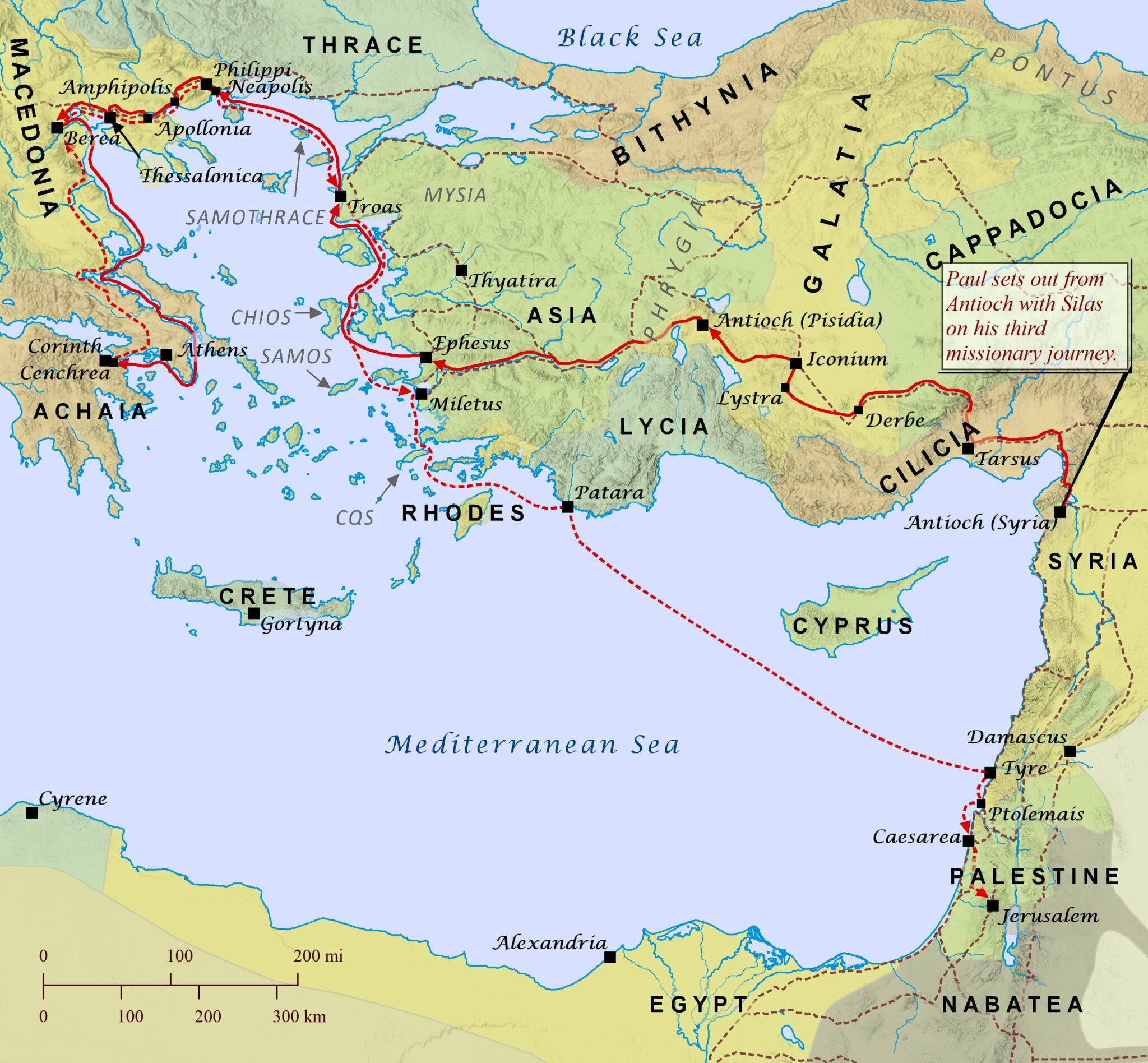Even though much of Israel has rejected Christ, there is a remnant who remain faithful. A remnant of faithful Israelites has persisted throughout history.
Much of Romans is written to refute the slander that Paul received from the competing Jewish “authorities” in Rome at that time (Romans 3:8). The slander was meant to reject Paul’s gospel message, that it is faith alone in Jesus, not works, that makes us righteous in the presence of God. It is probable that Priscilla and Aquilla were representing Paul’s views in Rome, since he has not personally preached the gospel in Rome at this point. Aquila and Priscilla had formerly taught with Paul in ministry when exiled from Rome, but have now returned to their home and established a church there (Romans 16:3; Acts 18:2, 18, 26).
Paul is making this point again in Chapter 9, but through the lens of the Jewish people, making the point that it is through faith in Jesus, not through heritage or the Law, that they will be made righteous in the presence of God.
Paul began this chapter by stating that he would be willing to be “accursed” if it meant he could save his fellow Jewish people (Romans 9:1-3). Paul tells his audience of Roman believers that a remnant of Jews will be righteous in the presence of God: Isaiah cries out concerning Israel, “Though the number of the sons of Israel be like the sand of the sea, it is the remnant that will be saved; for the Lord will execute His word on the earth, thoroughly and quickly” (vv 27–28).
Paul here quotes from Isaiah 10:22-23. This passage in Isaiah speaks of a time when Israel will no longer rely on treaties with other nations, but only on the Lord. And a remnant will return to the land. The passage speaks of “the Assyrian” as their opponent in Isaiah 10:24. In the time of Hezekiah, the king of Assyria conquered and exiled the northern kingdom of Israel/Samaria and invaded the southern kingdom of Judah which God miraculously spared.
This reference to “the Assyrian” in Isaiah could look forward to the Beast of Revelation, who will surround Jerusalem prior to Jesus descending to rescue the city and its people (Micah 5:5; Zechariah 14:1-3). Paul in this passage seems to pull another prophetic application, that there will be a remnant of Israel saved by believing in Jesus. This appears to apply to his time, as there are many believing Jews, but also to a future time. As Paul will assert in Chapter 11, “all Israel will be saved” (Romans 11:26). This could also apply to the future time when Israel looks on Jesus, the One whom they pierced, and mourns as one mourns a firstborn son (Zechariah 12:10).
We will find out in Romans 9:30–32 that it is because of the Jewish people’s rejection of His sacrifice that only a remnant of the Jewish people will attain righteousness.
Paul uses a second passage from the prophet Isaiah to assert that it is through God’s sovereignty and mercy on the Jewish people that they did not become like Sodom and Gomorrah—two cities that God destroyed because of their sin: And just as Isaiah foretold, “Unless the Lord of Sabaoth had left to us a posterity, We would have become like Sodom, and would have resembled Gomorrah” (v 29).
So, while God has mercy on the Jewish people, they are not exempt from the need to place their faith in Jesus, rather than the Law. That will be the emphasis in the next section, that Israel’s failure was that they looked for righteousness in the Law rather than seeking it through faith.
Biblical Text
27 Isaiah cries out concerning Israel, “Though the number of the sons of Israel be like the sand of the sea, it is the remnant that will be saved; 28 for the Lord will execute His word on the earth, thoroughly and quickly.” 29 And just as Isaiah foretold,
“Unless the Lord of Sabaoth had left to us a posterity,
We would have become like Sodom, and would have resembled Gomorrah.”
Check out our other commentaries:
-
Deuteronomy 32:15-18 meaning
The Israelites rejected the Suzerain God because He has blessed them to the point of excess....... -
Revelation 3:7-8 meaning
In the opening to the letter to the church in Philadelphia, Jesus promises this faithful church with an opportunity to walk in authority....... -
Hebrews 10:23-25 meaning
We should be fully committed to confess our hope in God. We should love and do good for our fellow believers. We should meet with...... -
The Spirit vs. The Flesh meaning
The Flesh and the Spirit are complete opposites. Our most fundamental choice as believers is choosing each day, each moment, which to obey....... -
Ecclesiastes 10:16-20 meaning
There is a time and place for pleasure, but when pleasure replaces industry, evil follows. ......



